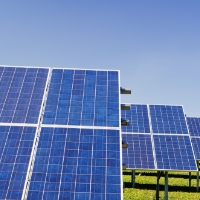
with Lesly Cassin and Fabien Prieur
Co-auteur: Alessandra Pizzo (Université Paris 8)
Co-auteur.trices(s) : Reyer Gerlagh
Résumé :
The article estimates flood risk perceptions by exploiting the different dates of release of information about flood risk around Paris from 2003 to 2012, a period when flood risk was not salient in the region. We implement a difference-in-differences specification on unique data on property transactions combined with geo-localised amenities from a major European city. The results indicate that home prices for similar real estate are 3 to 7% lower following information release when located in a flood risk zone, depending on the submarket (flats or houses). The effect is persistent. The discount is higher, the higher is the flood risk designated by the regulation. Buyers' previous exposure to floods reduces the price discount.
Co-auteur : Marco Vianna Franco
Résumé :
Les économistes sensibles aux enjeux environnementaux connaissent bien l’histoire de leur discipline, des Physiocrates à l’économie du climat et de la biodiversité, en passant par la question charbonnière de Jevons, les externalités de Marshall et de Pigou, le théorème de Coase, sans oublier le modèle de Hotelling (1931) ou encore la tragédie des communs de Hardin. Cette histoire des rapports entre économie et environnement n’est pourtant pas la seule à conter. De la Renaissance au milieu du XXe siècle au moins, beaucoup d’autres — économistes, naturalistes et théoriciens sociaux — ont examiné les relations entre dynamiques économiques et naturelles, en formulant des propositions pour beaucoup tombées dans l’oubli. Ces idées, incluant l’économie de la nature de Linné, la philosophie naturelle de Goethe, le réformisme sanitaire français et britannique du XIXe siècle, l’écologie russe et soviétique, la théorie duale de Popper-Lynkeus ou encore l’économie foncière américaine des années 1920 et 1930, méritent d’être réhabilitées à l’heure où chacun(e) cherche des solutions à la crise écologique contemporaine.
Co-auteur.trices(s) : Federica Daniele, Youssouf Camara, and David Bounie
Co-auteur.trices : A. Tomini and C. Costello
Co-auteur.trices(s) éventuel.le.s : Émeline Bezin (CNRS & Paris School of Economics) & David de la Croix (UCLouvain).
Co-auteurs : M. Attalah et J. Abildtrup
Abstract :
In this article, we use an experimental approach to test the effect of non-monetary incentives that can guide harvest professionals into adopting new sustainable harvesting practices. First, we test the effect of signing a declaration that commits wood buyers who voluntarily sign it to act in a sustainable manner. Second, we test the effect of priming by activating a concept of sustainability on subjects' behaviour. Our results provide evidence that signing a declaration is more effective than priming in inducing subjects to act in a sustainable manner when personal and collective interests are not aligned and there are financial incentives to make decisions that are against environmental sustainability. From a public policy point of view, a declaration is an effective tool and easy to implement by institutions aiming at fostering pro-environmental behaviour.
Co-auteurs Thierry Madiès (University of Fribourg) et Ornella Tarola (University Sapienza, Roma)
[papier]
Avec Robert Stelter
Avec Marion Davin
Avec Giuseppe Freni et Silvia Faggian
coécrit avec Boris Le Hir et Mathilde Salin
coécrit avec Erica Myers (University of Illinois at Urbana-Champaign)
coécrit avec Stefano Bosi
coécrit avec Hélène Ollivier, Raphael Calel, Martin Jégard / coécrit avec Cyril Bourgeois et Philippe Quirion
co-écrit avec Bazoumana Ouattara (University of Manchester) et Eric Strobl (University of Bern) // co-écrit avec Dominique Torre (Université Côte d'Azur – GREDEG – CNRS)
avec M. Fodha (PSE) et Y. Kirat (PSE)
Adrien Fabre (Paris School of Economics and University Paris 1 Panthéon Sorbonne)
Mouez Fodha (Paris School of Economics and University Paris 1 Panthéon Sorbonne)
Francesco Ricci (CEE-M, Univervité de Montpellier, CNRS, INRA, SupAgro, Montpellier, France)
co-écrit avec A. Méjean, A. Pottier et M. Fleurbaey
avec Mathias Thoenig et Dominic Rohner
This paper considers situations where an agent (say, a polluting firm's CEO) must allocate his nonobservable effort across two distinct tasks (say, revenue/market share enhancement and regulatory compliance), and where two principals (say, the firm's shareholders and a regulator) hold diverging viewpoints on what the best allocation should be. Both characteristics of this context - multi-tasking and conflicting principals - are normally seen as obstacles to strengthening the agent's incentives. This paper proposes a simple arrangement, based on contingent monitoring and clawbacks, that can overcome these obstacles. Under this arrangement, the principals would end up coordinating their respective incentive schemes so that the agent considers revenue enhancement and environmental compliance as complementary utility-increasing activities. Potential applications to corporate governance, corporate social responsibility, and green innovation are briefly discussed.
co-écrit avec E. Martin
co-écrit avec B. Chèze et V. Martinet
co-écrit avec G. Zaccour (GERAD) et NV. Long (McGill)
co-écrit avec J-M Blazy (INRA, UMR Astro)
écrit avec K. Constant
écrit avec F. Henriet et K. Schubert
écrit avec M. Delogu et L. Ragot
écrit avec J-P. Amigues, U. Chakravorty et M. Moreaux
écrit en collaboration avec K.A. Brekke, K.E. Hauge et J.T. Lind
en collaboration Anne Stenger
co-écrit avec Pierre Pestieau
écrit avec W. Rickels
 Veuillez patienter ...
Veuillez patienter ...